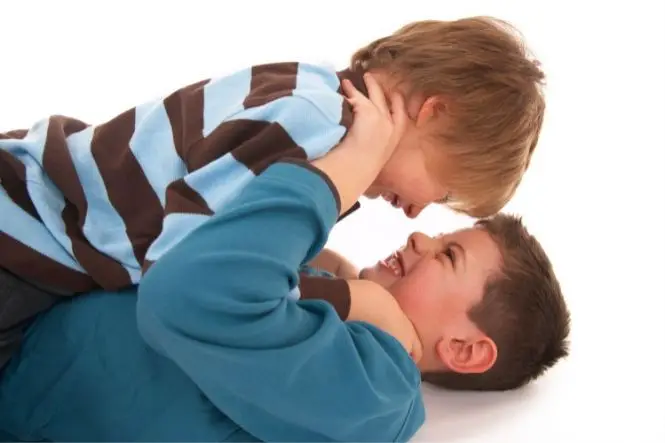Every parent hopes their children are happy at school, but few can be absolutely sure of it every day of the school year.
Talking with your child, observing your child, becoming involved in your child’s education and communicating with teachers should help you better learn about your child’s happiness at school but not every family will be able to take advantage of all of these avenues.
To help you assess your child’s happiness at school we have put together the following quiz.
Select the answer which best describes your situation, total your answers and match your results to the explanations at the end:
Table of Contents
1. When your child arrives home from school, (s)he:
a) Babbles non-stop about the best parts of the day.
b) Will answer the questions you ask about the day.
c) Refuses to speak about the school day.
2. When it’s time for homework, your child:
a) Wants to show off what (s)he has learned.
b) Is happy enough to get to work if you help.
c) Makes excuses or otherwise attempts to avoid it.
3. In the morning, your child:
a) Bounds out of bed, ready for the day.
b) Takes a while to get ready, but is generally agreeable.
c) Often complains of feeling ill or having a stomach-ache.
4. Your child’s nervous habits:
a) Don’t seem particularly school related.
b) Become more obvious when (s)he has a test, presentation or other assessment.
c) Show up every morning like clock-work.
5. When you visit your child’s classroom, (s)he:
a) Seems high-energy and involved in what is going-on.
b) Pays attention, even if (s)he may not be captivated by what is happening.
c) Seems low-energy, is often alone and/or daydreams instead of paying attention.
6. When you talk to your child’s teacher, (s)he:
a) Always mentions your child’s enthusiasm for all things school-related.
b) Is able to name your child’s friends and favourite subjects.
c) Conveys worries about your child’s happiness at school.
7. In general, your child’s behaviour:
a) Is good, and (s)he engages in more positive behaviours than negative.
b) Is acceptable, but no real difference between weekend-ends and week-days.
c) Is noticeably worse or more nervous on week-days.
8. Your child’s school items show signs of:
a) An active social life, with doodles and friends’ names everywhere.
b) Usual wear and tear.
c) Negative emotions, including worrying doodles or words.
9. When your child returns home, (s)he looks:
a) Messy, but as though (s)he was actively involved all day.
b) Messy, as though a little more organisation might not go amiss.
c) Messy, with cuts, scratches and tears which might indicate bullying.
10. When you ask your child if (s)he is happy at school:
a) (S)he immediately and enthusiastically says yes.
b) (S)he says school is fine.
c) (S)he stays silent, offers a sarcastic answer or says no.
Mostly As?
If you answered mostly “A” then your child is most likely very happy at school.
By all indications (s)he is actively involved, social with friends and interested in studies.
There may be some aspects of school (s)he’s not wildly excited about, but this is to be expected.
If you feel you have open communication with your child then ask him or her about her favourite and least favourite parts of school and how (s)he would change things if she could.
Find out if his or her teacher reports the same things to make sure you are all on the same page about your child’s interests and strengths, as well as disinterests and weaknesses.
Mostly Bs?
If you answered mostly “B” then your child is most likely at least moderately happy at school.
(S)he may not be wild about classes, and (s)he might be happier at the weekend, but this does not mean that her specific school or class is making him or her unhappy.
Some students will never admit to liking school or being happy about any class, so be sure to observe your child for signs of happiness or unhappiness as well.
If you really can’t tell, volunteer in his or her class now (on a school trip etc) and then so that you can gather information first-hand as well.
Mostly Cs?
If you answered mostly “C” then there is every chance your child is not very happy at school.
Observe your child, his or her answer and his or her school items to see if there are noticeable differences over the coming weeks.
Do you see any signs of bullying, an inability to cope with school work or evidence that your child has few friends?
If so, contact your child’s teacher immediately.
(S)he might have more insight into what is going on and at the very least you’ll be able to share your fears and the reasons behind them.




